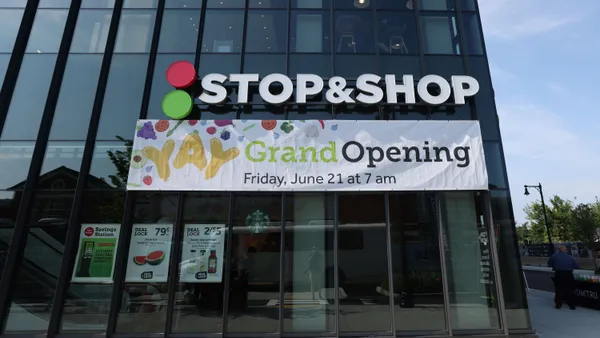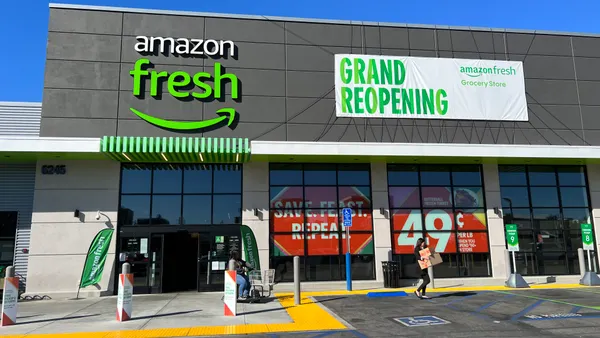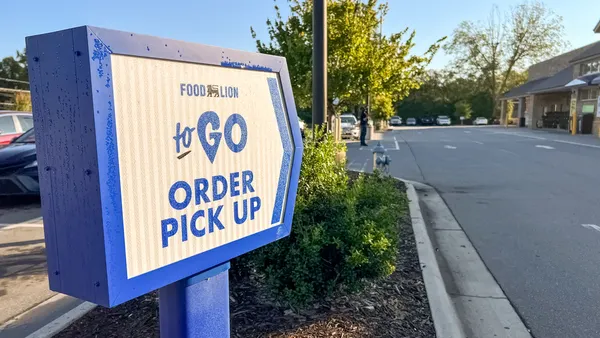Dive Brief:
- Health Care Service Corporation (HCSC) and the Blue Cross Blue Shield Institute (BCBS) have launched a healthy food delivery service called foodQ designed to bring affordable and balanced meals to people living in food deserts, the Chicago Tribune reported. The meals are geared toward people with diet-related chronic illnesses with the goal of reducing the number of flare-ups and emergency room trips.
- To receive foodQ meals, residents of these zip codes can review the meal options on the program website. After entering their payment information and selecting a delivery date and time, they receive a text message confirming their order in addition to notifications when the meals are on their way and when they’ve been delivered. The program offers a $10 per-month subscription fee that includes delivery and a buy-one-get-one option for each meal purchased. Non-subscribers can purchase individual meals for $10 with a delivery fee of $6 per order.
- FoodQ will pilot in 40 zip codes for six months throughout Chicago and Dallas where HCSC operates health plans, but anyone can take advantage of the program regardless their health insurance carrier or insurance status. HCSC and BCBS will collect information from users through a series of surveys to assess both demand and the user-friendliness of the program.
Dive Insight:
As studies begin to solidify the link between food and well-being, more companies like BCBS and HCSC are experimenting with how to provide nutritional meals that can help people who struggle with certain illnesses.
BCBS' partnership with HCSC — the fourth largest health insurer in the U.S. — isn't the institution's first foray into meal services. It partnered with Platejoy in February of 2018 to offer a diabetes-focused meal plan that is covered by five of its health insurance plans. HCSC also jumped on the meal delivery bandwagon as part of its Affordability Cures program, which it created to address the root-level issues in America's health care system that can often lead to crushing medical debt for many patients.
A few other companies are dabbling with prescription-focused meal kits. San Francisco-based Sun Basket added Dr. David Katz as its chief science advisor to create what it describes as an "online food-as-medicine platform" connecting dietary and health needs to food. Celebrity chef Tricia Williams and New York City-based Dr. Frank Lipman launched Be Well Eats, offering grain-free, dairy-free organic meals focusing on adaptogenic herbs and backed by a team of certified nutritionists. Users still have to cook the meals from either outlet, however.
What's notable about foodQ, however, is its affordable cost and convenience. The $10/month subscription package includes delivery of ready-to-eat meals. For patients with chronic illness, making drastic changes to their diets can be one of the biggest challenges. Prepared meal services take the guesswork out of food shopping, prep and cooking.
The meal delivery program also looks to broach the problem of food deserts, which are places that lack access to fresh food. Often, the most easily accessible food are high in cholesterol, sugar and fat, while any available produce is sold at a higher cost. There were roughly 2.3 million Americans living in a food desert in 2016, according to the Nonprofit Quarterly. Delivering prepared meals right to users’ doorsteps helps overcome food desert dwellers' logistical challenges.
While some may be surprised to see the pilot focusing on major metropolitan cities like Dallas and Chicago, food deserts aren't always in the middle of nowhere. A lack of reliable transportation to fresh food markets, economic blight and other factors can create food deserts even in metropolitan areas.












